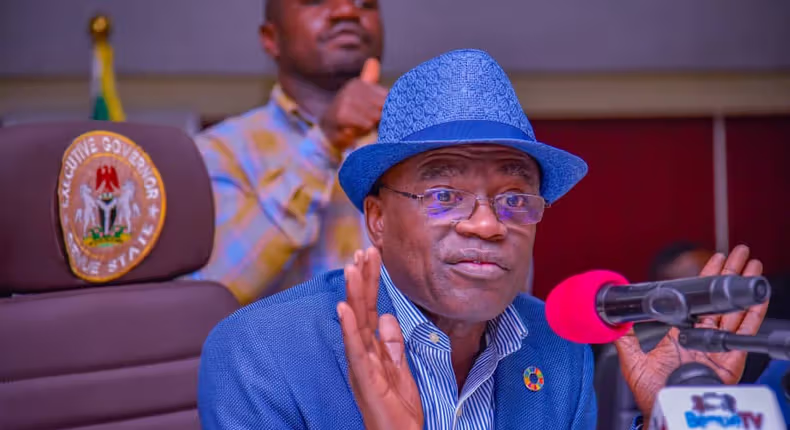A group of human rights activists has filed a lawsuit against Benue State Governor Hyacinth Alia, challenging a new public order law introduced by his administration. The plaintiffs, Bemgba Iortyom and Adebayo Ogorry, argue that the law severely infringes on fundamental rights and represents a “reign of dictatorship” that needs to be stopped. The controversial law, which includes restrictions such as a ban on public events after 10 pm and a prohibition on hawking, has faced widespread criticism for allegedly suppressing free speech and criminalizing ordinary citizens.
The activists contend that the law is vague, oppressive, and unfairly targets vulnerable groups and perceived political adversaries. “We are convinced that our action is taken as a duty to save the state from the threat of executive recklessness and authoritarianism manifest in Governor Alia’s action, which, if not nipped in the bud, will undermine the cherished foundations and values of constitutional democracy upon which it is our hope a just, strong, and prosperous Benue State will be built,” the activists said at a press conference. The activists urged the court to set aside the law by the governor as null and void.
They also called on the court to grant the following reliefs:
1. A declaration that the requirement to first seek and obtain a permit from the Department of Public Order at the Ministry of Justice and Public Order, Benue State, for holding rallies, wakes, and other forms of public gatherings is illegal and unconstitutional as it violates sections 40, 41, and 45(1) of the 1999 Constitution and Article 11 of the African Charter on Human and People’s Rights (Ratification and Enforcement) Act, Cap. 10, Laws of the Federation of Nigeria, 1990.
2. A declaration that the provisions of the Public Order Act, Cap. 382, Laws of the Federation of Nigeria, 2004, upon which the Executive Order made by Governor Hyacinth Alia and signed on February 27, 2024, was purportedly premised, are in themselves illegal and unconstitutional as they contravene sections 40, 41, and 45(1) of the 1999 Constitution (as amended) and Article 7 of the African Charter on Human and People’s Rights, Cap. 10, Laws of the Federation of Nigeria, 1990.
3. A declaration that the Defendants are not competent under the Public Order Act, Cap. 382, Laws of the Federation of Nigeria, 2004, or under any law made by the National Assembly or the Benue State House of Assembly to issue any permit for the holding of rallies, wakes, or any such public gatherings after 10 pm.
